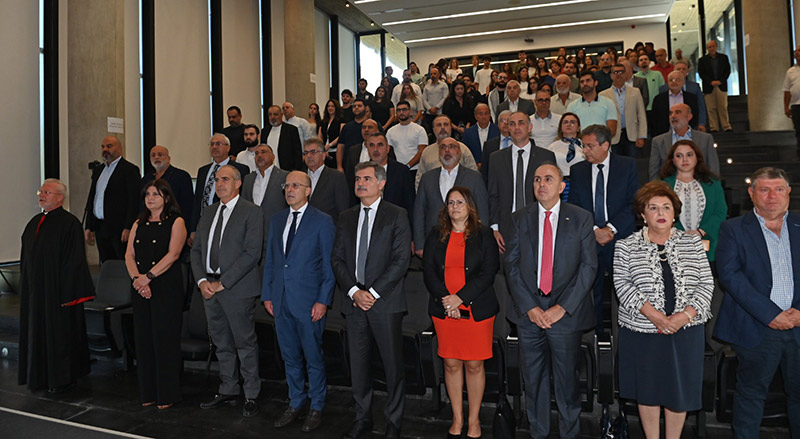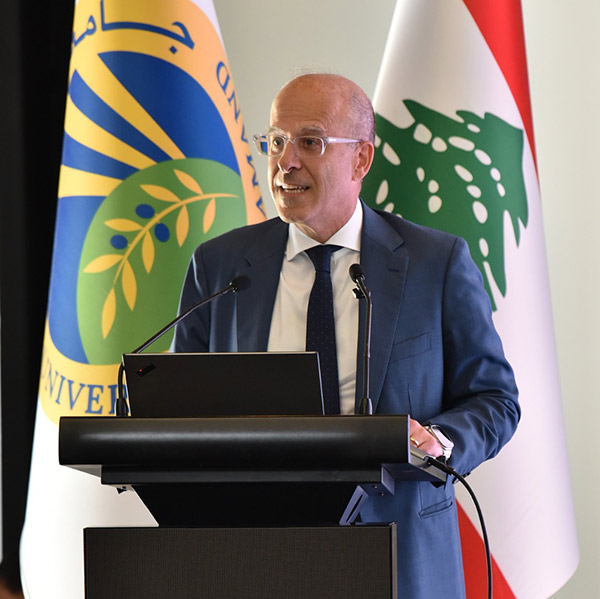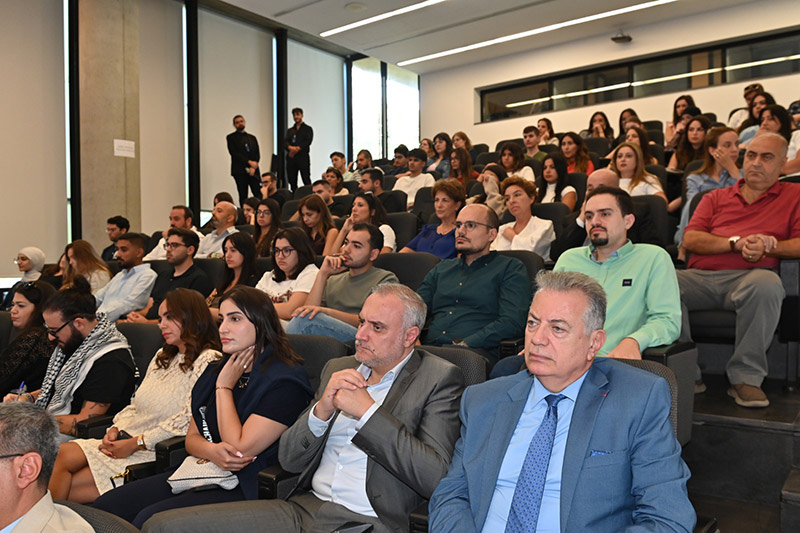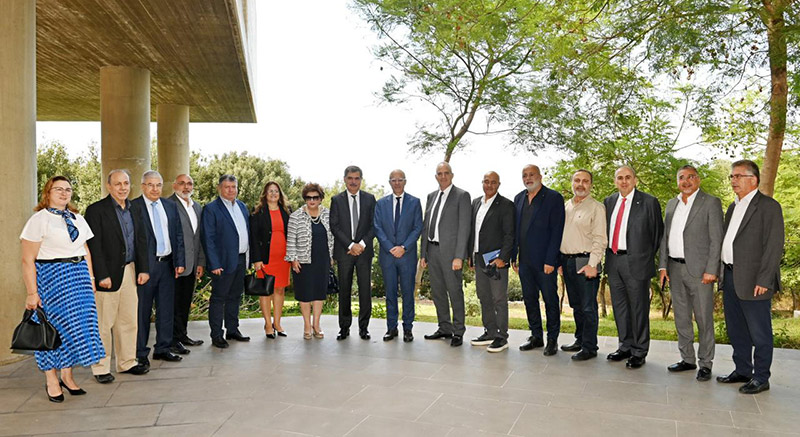September 30, 2025 – As part of the “Reinventing Government 2030” project launched by the Ministry of State for Administrative Reform, and in collaboration with the University of Balamand, Department of Political Science and International Affairs, a town hall meeting was held on the university’s Koura campus. The meeting took place within the “Stakeholders' Aspirations” phase and was attended by His Excellency Dr. Fadi Makki, Minister of State for Administrative Reform.
This joint meeting, organized by Dr. Noura Assaf Faculty Member at PSIA Department, underscored the partnership between the academic and public sectors, aiming to engage academia and gather perspectives on the priorities and directions of administrative reform, reinforcing the principle of participation. The meeting was attended by the University President, Dr. Elias Warrak, alongside social and political figures from the academic and civil communities involved in public affairs, as well as the university’s deans, directors, faculty, staff, and students.
Dr. Makki presented the Ministry’s vision for modernizing state institutions and administrations, highlighting major challenges that hinder their effectiveness, including the slow pace of job modernization, outdated laws and procedures, weak organizational structures, inefficiencies in the wage system, fragile digital infrastructure, and the absence of accountability. He emphasized that addressing these challenges requires rebuilding the public sector on the foundations of efficiency and transparency, free from favoritism, with the goal of establishing a new social contract that restores trust between citizens and the administration.
H.E Dr. Makki elaborated on the three phases of the “Reinventing Government 2030” plan: beginning with laying the foundations and comprehensive vision, moving through the development of a master plan for public sector reform, and culminating in a fundamental transformation of the structure of public administrations and institutions by the year 2030.
In his remarks, Dr. Warrak highlighted the importance of seizing this opportunity to identify the root causes that have brought state institutions to their current state. He pointed out that the lack of accountability and the spread of corruption are among the main challenges standing in the way of change. He called for the adoption of a transparent approach to administrative work, “where citizens understand how and why decisions are made” stressing that digital transformation and the implementation of e-governance are essential entry points for addressing corruption and enhancing efficiency within public administrations.
This meeting underscores the vital role the University of Balamand plays in supporting administrative reform efforts, through its commitment to spreading knowledge, promoting constructive dialogue, and actively contributing to shaping a more efficient and transparent future for public administration in Lebanon.



